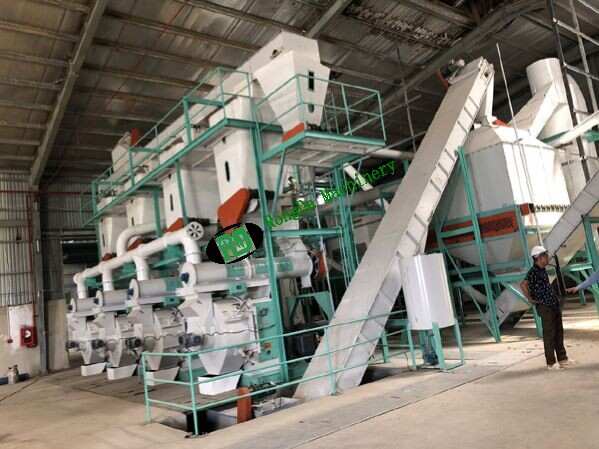Welcome to Rongda Machinery Co., Ltd
Toggle Navigation
The transition toward sustainable energy solutions has accelerated dramatically in recent years, with biomass pelletization emerging as a cornerstone technology in renewable fuel production. At the heart of this transformation lies the sophisticated pellet mill systems designed specifically for wood and biomass processing, which are reshaping how we approach waste-to-energy conversion and sustainable manufacturing.

Contemporary pellet mills operate on advanced compression principles, utilizing precisely engineered dies and rollers to transform diverse organic feedstocks into uniform, high-density fuel pellets. These machines process everything from forestry residues and sawmill byproducts to agricultural waste streams, creating consistent energy products that rival traditional fossil fuels in efficiency and reliability.
The pelletization process involves moisture conditioning, grinding, compression, and cooling phases, each optimized through cutting-edge engineering to maximize energy output while minimizing production costs.
Modern biomass pellet production creates a closed-loop carbon system where atmospheric CO2 absorbed during plant growth is released during combustion, achieving net-zero carbon emissions. This cycle significantly reduces the environmental footprint compared to fossil fuel alternatives while providing stable, reliable energy output.
Through advanced compression techniques, pellet mills convert low-density organic materials into concentrated energy sources with BTU values comparable to traditional heating fuels. This densification reduces storage requirements by up to 80% while improving transportation efficiency and logistics management.
State-of-the-art pellet mill operations leverage automated systems and precision engineering to minimize production costs while maximizing throughput. By converting readily available waste materials into premium fuel products, these systems create profitable revenue streams from previously discarded resources.
Modern pellet mills demonstrate remarkable flexibility, processing diverse raw materials including hardwood and softwood residues, corn stover, wheat straw, energy crops, and emerging feedstocks like algae biomass. This adaptability ensures consistent production regardless of seasonal variations in material availability.
The pellet mill industry continues advancing through several key technological innovations:
Precision-Engineered Die Systems: Advanced metallurgy and manufacturing techniques produce pellet dies with extended lifespan and superior pellet formation characteristics, reducing maintenance requirements while improving product quality.
Intelligent Process Control: Sophisticated monitoring systems utilize sensors and data analytics to optimize pelletization parameters in real-time, ensuring consistent pellet quality while minimizing energy consumption and equipment wear.
Energy Recovery Systems: Heat recovery technologies capture and reuse thermal energy from the pelletization process, significantly reducing overall energy requirements and operational costs.
Modular Design Architecture: Contemporary pellet mills feature scalable, modular construction allowing facilities to expand capacity incrementally based on market demand and feedstock availability.
Biomass pellets manufactured by modern pellet mill systems serve diverse market segments including:
Industrial Energy Generation: Large-scale power plants utilizing pellets for baseload electricity production
Commercial Heating Systems: District heating networks and commercial facilities adopting pellet-fired boilers
Residential Energy Solutions: Home heating systems and cooking applications in developed and emerging markets
Export Markets: International trade in standardized pellet products meeting global quality specifications
The pellet mill industry continues evolving through ongoing research into enhanced compression technologies, alternative feedstock development, and improved energy efficiency. Emerging trends include integration with other renewable energy systems, development of next-generation smart manufacturing processes, and expansion into new geographic markets driven by favorable policy environments and increasing environmental awareness.
As global energy policies increasingly favor renewable alternatives, pellet mill technology stands positioned to play an expanding role in sustainable energy production, offering proven, scalable solutions for converting organic waste into valuable clean energy resources.